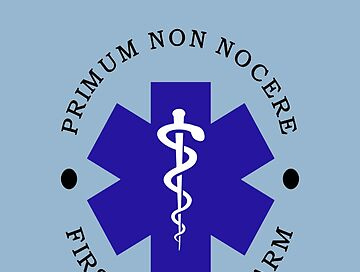The phrase primum non nocere, “first, do no harm”, is not actually part of the Hippocratic oath, but it remains central to medical education and practice. I want to highlight how this principle applies when giving medical advice, especially by those who are not healthcare professionals.
Too often, people offer medical advice without realizing the potential harm it can cause. Unless you are extremely careful, which is difficult without formal training, you may unintentionally hurt someone rather than help.
First, make sure the advice is truly about the other person, not about you.
Many of us feel a strong need to speak or to give direction. This might come from feeling unheard, being insecure, wanting to feel useful or trying to impose order on others' lives. While these impulses are understandable, they should not guide your comments on another person’s health. If the advice is not focused entirely on the well-being of the other person, it risks doing harm.
Second, medical advice requires detailed, technical knowledge of the person’s condition.
Casual observations like “you don’t look well” are not a sound basis for recommending treatment. Medical professionals spend years learning how to take a full history, conduct physical exams and interpret test results and consultations by other physicians. Without that information, your advice may be not only incorrect but dangerous, especially if it delays someone from getting proper care.
Third, even with a correct diagnosis, treatment decisions are complex.
Medicine is rarely simple. It requires a deep understanding of physiology, pathology and how to motivate people to follow treatment plans. It also demands strong communication skills. Many people resist advice, especially when it comes off as controlling or intrusive. Even correct advice can backfire if delivered poorly.
Most physicians hesitate to give medical advice to strangers because they understand how much they don’t know about that person’s health. I suggest you take the same approach.
If you're worried about someone, consider asking a gentle question like, “I was wondering about ___. Do you think that might be a problem?” If they don't want to discuss it, respect their boundary unless it’s a true emergency.
If you're on the receiving end of unwanted advice, a polite but firm response like, “Thank you for bringing that to my attention. I’ll think about it,” can help end the conversation. If they persist, simply repeat the phrase or disengage.
Have you had experiences with giving or receiving medical advice, good or bad? I’d like to hear about them. Feel free to comment or email me at Nat@PathologyOutlines.com.
The index to my prior essays (mostly post 5 November 2024) is here.
I have another blog on Cancer and Medicine.
You can also follow me at https://www.linkedin.com/in/nat-pernick-8967765/ (LinkedIn), npernickmich (Threads and Instagram), natpernick.bsky.social (Bluesky) or @nat385440b (Tribel).
Email me at Nat@PathologyOutlines.com.
I also publish Notes at https://substack.com/note. Subscribers will automatically see my notes.




